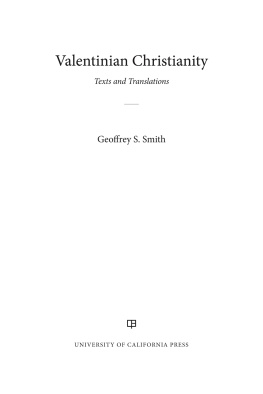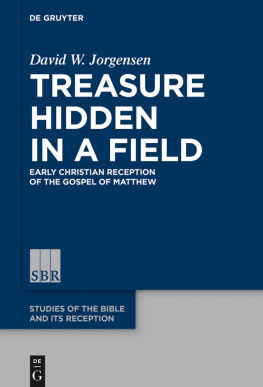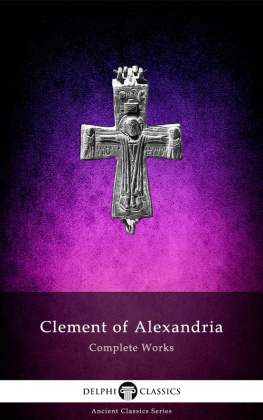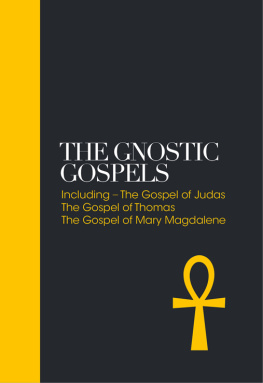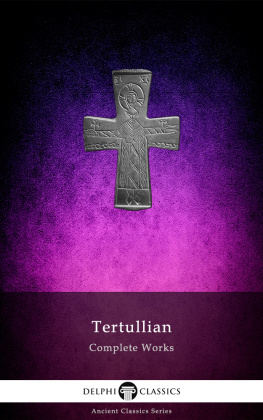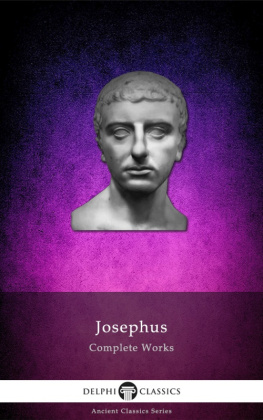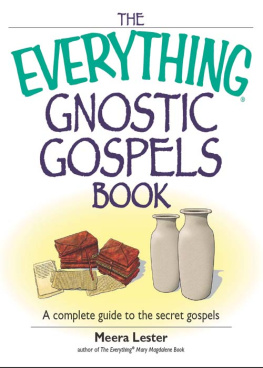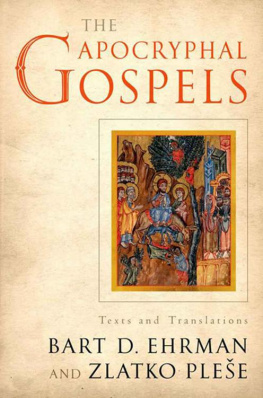Geoffrey S. Smith
Names: Smith, Geoffrey S. (Geoffrey Stephen), 1983- translator, writer of introduction. | Container of (work): Valentinus, active 2nd century. Works. Selections.
Title: Valentinian Christianity : texts and translations / Geoffrey S. Smith.
Description: Oakland, California : University of California Press, [2019] | Includes bibliographical references and index. |
Identifiers: LCCN 2019016112 (print) | LCCN 2019019840 (ebook) | ISBN 9780520969803 (ebook) | ISBN 9780520297463 (cloth : alk. paper)
Subjects: LCSH : ValentiniansHistorySources. | Church historyPrimitive and early church, ca. 30600Sources. | Gnostic literature.
Classification: LCC BT 1475 (ebook) | LCC BT 1475 . V 35 2019 (print) | DDC 273/.1dc23
Funding for this volume was made possible by a research sabbatical in the fall of 2017 , generously granted by the University of Texas at Austin, and ongoing support from the Institute for the Study of Antiquity and Christian Origins.
Introduction
Valentinus and the Valentinian Tradition
To tell the story of the Valentinians is to embrace a series of enigmas. Second-century Christians accused Valentinus of heresy, but only decades earlier, he nearly became one of the most prominent leaders within the Roman church; the Valentinians were among the first Christians to write commentaries on the Bible, but they were also frequently accused of not taking the Scriptures seriously; and by the third century Valentinians were active throughout the Mediterranean world, from Gaul to Syria, and as far south as Egypt, yet by the end of the following century they would all but disappear from the historical record. But fortunately for us, they did not disappear without leaving a trace. Several texts written by Valentinus and his followers have survived. Some have been known since antiquity, but many more surfaced in 1945, when they were unearthed just outside of the Egyptian town of Nag Hammadi. This collection brings together for the first time all of the writings known to have been composed by the so-called Valentinians.
VALENTINUS
Little is known about Valentinus, the patriarch and namesake of the Valentinians. Around 135 C.E. Valentinus appears to have traveled from his homeland of Egypt,
THE VALENTINIAN TRADITION
Even though nothing more is known about this early Christian teacher after his departure from Rome, his legacy becomes the subject of controversy throughout the next two centuries, with some, like Irenaeus and Epiphanius, bent on refuting Valentinian teaching and others, like Clement and Origen, making judicious use of it. Patristic authors single out several Christian teachers as Valentinian; most prominent among them are Ptolemy, Heracleon, and Theodotus. While scholars debate the extent to which later so-called Valentinians remained faithful to the teachings of Valentinus, most are confident that the Valentinians belonged to a distinct Christian group, distinguishable by their unique theology and rituals. The last credible evidence for the existence of Valentinian Christians appears in 388, when an anti-Semitic outburst in Callinicum, present-day Raqqa, led some Christians to set fire to a Jewish synagogue, a blaze that also destroyed an adjacent Valentinian church.
If Valentinuss legacy was controversial to some, it was inspirational to others. From the second through the fourth century, Christians affiliated with the Valentinian movement composed numerous texts, many of which survive today, thanks in part to those who preserved their texts while writing against or about the Valentinians, and to the chance discovery of numerous papyrus codices of heretical early Christian writings near the Egyptian town of Nag Hammadi in 1945. Valentinian texts appear in codices I, II, XI, and XII. Codex I alone includes three Valentinian texts, the Gospel of Truth, the Treatise on the Resurrection , and the Tripartite Tractate, leading some of the first scholars to work on codex I to regard it as Valentinian and to assign the anonymous treatises therein to known Valentinians. The Gospel of Truth was thought to have been composed by Valentinus himself, and the Tripartite Tractate by Heracleon. Despite the fact that most scholars no longer regard all of the texts in codex I as Valentinian and have become more cautious about assigning these anonymous texts to known Valentinian teachers, the concentration of Valentinian texts in codex I remains intriguing. The discovery of the Nag Hammadi library in 1945 not only dramatically increased the number of known texts composed by Valentinians; it also provided access for the first time to Valentinian texts that survived independent of the patristic literary tradition.
Now that we have a wealth of texts written by Valentinians, we are confronted by a curious reality: though scholars often regard the Valentinians as a distinct Christian sect that thought of themselves as disciples of Valentinus, no surviving text composed by a so-called Valentinian actually uses the term Valentinian. This When Valentinians do refer to themselves, they call themselves the spiritual seed or simply the church.
VALENTINIAN TEXTS
This collection includes only those texts written by Valentinus and the so-called Valentinians. I have chosen not to include the reports about the Valentinians for two reasons. First, including the numerous reports about the Valentinians would have made this volume impractically long; and second, many of the reports about the Valentinians are colored by bias to various degrees and are designed to cast the Valentinians in a negative light.
However, since no ancient authors identify themselves as Valentinian or followers of Valentinus, we must determine how to identify texts composed by authors considered Valentiniana process that admits that we have not completely broken free of patristic influence. Texts are included in the present collection on the basis of one of two considerations: (1) a patristic author credibly identifies the text or author of the text as Valentinian; and (2) the theology, ritual practice, or technical terminology resembles to a high degree the theology, ritual practice, or technical terminology deemed Valentinian by patristic sources or found in texts deemed Valentinian by patristic sources.
Texts that ancient authors identify as Valentinian or attribute to known Valentinian teachers include the fragments of Valentinus, Heracleons fragments, Ptolemys Letter to Flora, the anonymous Commentary on the Prologue of John, the Anonymous Letter, the Excerpts of Theodotus, the anonymous Commentary on Valentinuss Summer Harvest, and perhaps the Gospel of Truth . That the Gospel of Truth belongs to this category is less certain (see the introduction to the Gospel of Truth ). Nevertheless, on the basis of its theology and hermeneutical mode, and the striking similarities between its language and that of the Tripartite Tractate, a text whose Valentinian characteristics are not in doubt, we can with confidence include the Gospel of Truth within the Valentinian corpus, even if it may not be identical with the text mentioned by Irenaeus.

